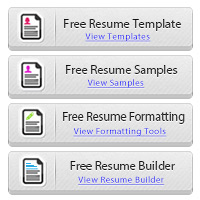
What can I put as Experience on my Resume?
One of the most challenging aspects of finding a new job can be coming up with ideas to fill out your resume if you lack specific experience in the field you are applying in. Many job vacancies ask for experience as a matter of course and it is certainly challenging to gain this experience if nobody is willing to give you a chance in the first place.
However all is not lost. By thinking outside of the box and employing some creative descriptive skills, you may find that you actually have more experience that you realize.
1. Volunteer Work or Free Consultation
One excellent way to gain experience when you’re just starting out is to offer your services for free. This is a great way to gain the necessary experience that so many jobs for without actually being in paid employment. Free and volunteer work does not have to be full-time – even consultation that you provide for a friend can help to showcase important skills if you take the time to describe it fully on your resume.
2. Responsibilities That You Carried Out But Weren’t Part of Your Job Description
Many people make the mistake of simply replicating their job description when it comes to describing roles and responsibilities on their resume. In fact many actual job roles end up being much broader than their original description, so don’t be shy to shout about your accomplishments, even if they were not an official part of your job description. Examples might include training other staff, assisting in other departments, and using different kinds of computer software.
3. Unofficial Leadership Responsibilities
If you were appointed as unofficial team leader, or accepted management responsibilities, even though your official job title wasn’t a management role, make sure you include these important skills on your resume. Management skills are useful in many different types of work and you don’t need to have the job title of “manager” to show you have leadership qualities. Don’t make up a new job title for yourself, but don’t be afraid to say that you led a team of five people, or managed department budgets if this was part of your job role.
4. Skills Learned From Training
If you picked up new skills and experience from on-the-job training, or any kind of training that you undertook both inside and outside of work, make sure to include this on your resume. Vital skills can be learned not only from official college courses but also from training that you receive while at work, whether as part of official staff training, or just something that a colleague taught you unofficially.
5. Skills Developed Outside of Work
Don’t be limited to the roles and tasks associated with your professional career. Many people have valuable skills and experiences gained outside of work, which can be applied to many different careers. Managing budgets, time management skills and delegation for example, are all skills that many people use outside of work in order to run a household or just manage their own lives, and there’s no reason to stop you from putting these skills on your resume if you feel they are relevant.
A little creative writing can often help to make these skills sound more career-applicable and it can help to write down everything you do in your daily life and think about what skills they demonstrate that you can use on your resume.
6. Accomplishments Achieved Outside of Work
In the same way, your greatest accomplishments should not be overlooked, even if they had nothing to do with your job. Examples of personal accomplishments that involve overcoming adversity or demonstrate persistence and hard work such as running a marathon may not seem relevant to a professional position but they showcase valuable personality traits that any hiring manager should recognize as being an asset for the company.
7. Any Ideas You Came up with at Work, Even If They Were Attributed to Someone Else
If you came up with a great idea at work that was used to help achieve company objectives, make sure your new prospective employer knows about it. Often ideas thought up by staff are attributed to their line managers, especially if they are brought up unofficially in team meetings, but if the initial idea was yours, you should definitely claim it on your resume. If you need more help on this check our article on how to tailor a resume.
